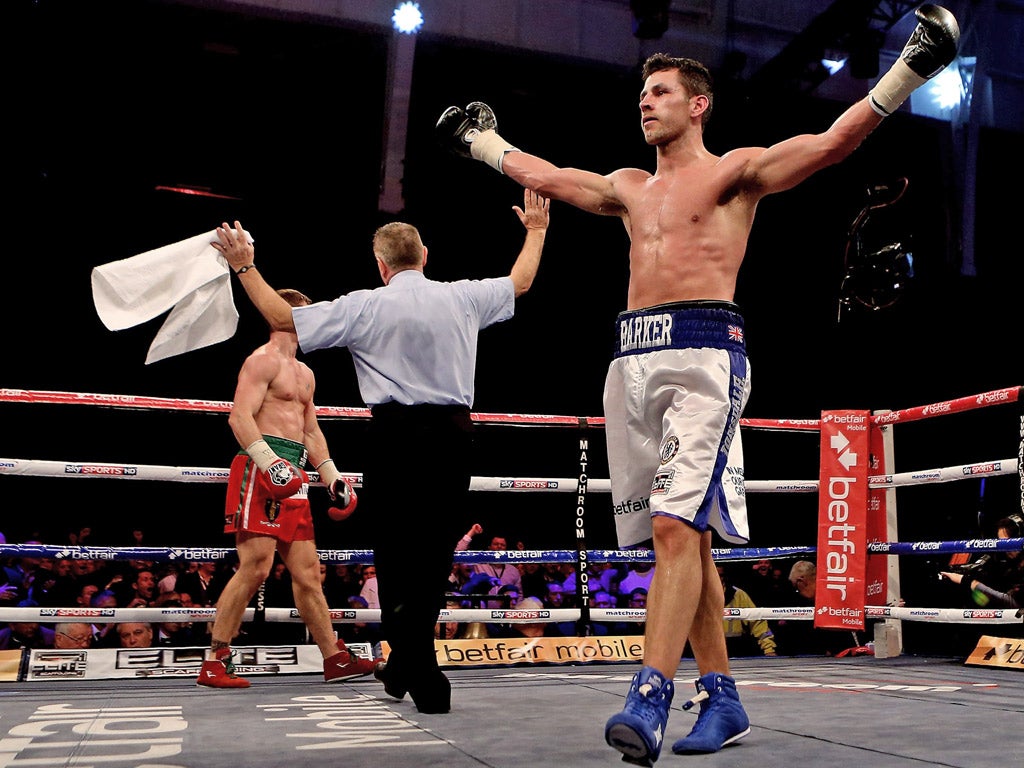Bunce on Boxing: Record 58 fights in one night reveals a booming business

On Saturday 8 December a new record was set for professional boxing in Britain when 58 fights took place on one night. The previous highest record was set on a cold Monday night on February 4 1952 at a time of great upheaval and hardship. I have no idea how many of the fighters on that night 60 years ago had picked up the gloves during their national service but I would imagine the figure is high.
It was not the first time this year that the 60-year-old record has been under siege and there is every chance that in 2013 the record could tumble again. On that Monday in 1952 there were 12 shows, many at now demolished and lost venues, but there were no title fights above regional level. The reality is that many of the shows that night featured boxers that never moved anywhere near championship level and Monday night was simply a traditional night back then for real fights, old-school 50-50 affairs.
The landscape is different now and in addition to the rising number of fights, promotions and fighters at the moment there has also been a spectacular increase in television coverage: since the start of December BoxNation, Sky, Channel Five, ESPN and Loaded TV all screened significant live title fights involving British boxers.
There was no TV in 1952 for the warriors swapping punches at Leyton Baths and Great Yarmouth's Hippodrome but many of the important regional fights did receive national paper coverage.
In recent months huge crowds watched the end of Ricky Hatton, the latest world title fight from Carl Froch, Freddie Flintoff's madcap debut and David Price taking out Audley Harrison in less than 90 seconds. David Haye's show in the celebrity jungle will not hurt his figures when he finally agrees terms with Vitali Klitschko next year.
There is every chance that by the end of March next year more British boxers will have been in British, Commonwealth, European and world title fights than any particular year in the sixties or seventies. There were shocking years in the seventies when it was not unusual for fewer than a dozen meaningful fights to take place; the years were invariably rescued by a few prime time slots on the BBC featuring John Conteh or John H Stracey in a world title fight.
However, it should be remembered that the combined world title ambitions of the seventies icons Conteh, Stracey, Mo Hope, Jim Watt, Charlie Magri and Alan Minter are roughly equal to the efforts of Carl Froch at the same level in the past three glorious years.
It was possible in the late seventies and early eighties to fill a couple of VHS tapes with every single fight that was shown on British television and that includes the bizarre appearances by fighters on game shows and dressed as women on variety shows. It was a sad existence for a boxing fan recording Conteh swapping banter with Des O'Connor.
Back in 1952, but not boxing on that fateful February night, there were some big names floating about the business. It was the year after Randy Turpin had shocked the world of sport to win the middleweight title from Sugar Ray Robinson in London; a title he lost three months later in New York. In 1952 Turpin moved to light-heavyweight and won the British title when he stopped Don Cockell in a big fight. Cockell would get even bigger and fight Rocky Marciano for the world title in 1955 in one of the most gruesome spectacles of utter bravery ever seen in a ring.
Turpin, Robinson, big old Cockell and the real Rocky are big names to play with, as are Minter, Conteh and Magri from the seventies, but the brutal truth is that in last few days of 2012 with fighters such as Haye, Price and Froch the British boxing business is doing very good business indeed.
Join our commenting forum
Join thought-provoking conversations, follow other Independent readers and see their replies
Comments
Bookmark popover
Removed from bookmarks